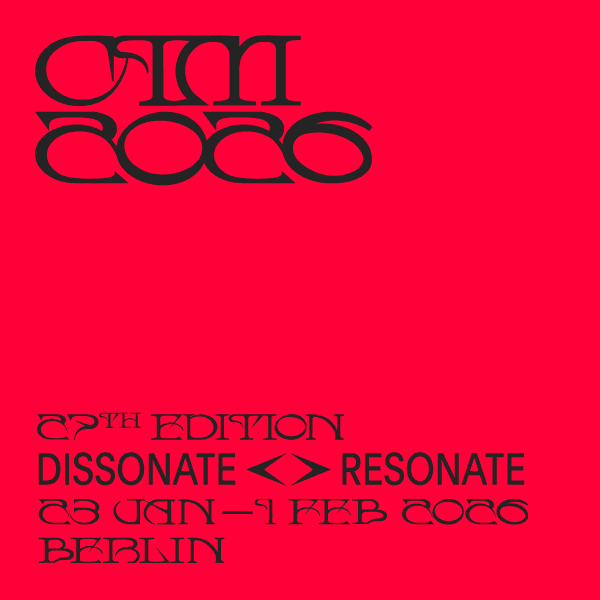
One man, one mission
‘I read the procedures. I multi-task. I work well at any altitude.’ Mathias Monrad Møller knows how to sell himself as a graduate singer-composer at a time when a global pandemic has changed all the rules and the culture sector’s centre of gravity has all but evaporated.
In the second half of his graduation diptych The Combat (Takkelloftet, 7-8 October), Møller adopted the motionless stance of an astronaut experiencing the ultimate in self-isolation aboard a space station. He repeated those words as a mantra. Slowly but surely, the universe compressed itself into his view of things just as his mind lost any sense of a standard gravitational pull. ‘Love is useless ballast,’ he concluded.
Maybe, but the eleventh-century crusader Tancredi didn’t get the memo. The Combat was a contest of two halves, in which Møller’s own Boring Orbits (2020) was threaded via a single note directly out of Claudio Monteverdi’s miniature fight opera/madrigal Il combattimento di Tancredi e Clorinda (1624).
Monteverdi’s is a piece all about love, though there’s a thing or two about the futility of war in it too. After the emotional stress and physical strain of Combattimento, we encountered the astronaut Tancredi freed from the emotional ballast of love and indeed the presence of other people – a person for whom flattering phone calls from Pope Benedict and Barack Obama are mere irritants.
Masterpiece and minimalism
If you came away from The Combat with any certainty, it was that Mathias Monrad Møller’s fierce yet disciplined imagination, combined with his confidence, will be delivering interesting things in the future whatever storms have to be weathered.
It takes presence to turn Monteverdi’s three-hander Combattimento into a one-man show and while we did lose much – including the actual words Monteverdi prized even over music, given the bizarre decision to play it without surtitles when the necessary equipment had already projected a plot summary above the stage – a lot was salvaged.
The text from Torquato Tasso’s La Gerusalemme liberata follows a standard mistaken-identity archetype in which a crusader knight fights and mortally wounds his enemy, only to learn that underneath the armour that enemy is his beloved, Clorinda.
All about the words? Yes and no. Monteverdi promised ‘a song of a kind which has never been seen or heard before,’ but it was his instruments that got most of the new ideas and noises in Combattimento, given pioneering string techniques including tremolo. Everything in the story is represented by those instruments, from the pawing of the ground by horse hoofs to the physical restriction of armour and the ratcheting exhaustion of a two-handed fight. Ugliness in the service of drama.
Whatever he does next, you’ll probably be focusing on something bigger than how well he sang it or scored it
But Monteverdi’s cascading, ecstatic harmonies were given new resonance in this performance by the context of intangible spiccato noodling and overtone playing that shivered through Takkelloftet as the audience drifted in. The ensemble, led from the harpsichord by Yngvild Vivja Haaland Ruud, played stylishly on baroque instruments and approached their role in the drama with seriousness.
With those acting instrumentalists for support, perhaps Møller’s decision to go it alone on stage wasn’t all that risky – especially as the work’s narrator is the master puppeteer even when there are two others on stage. But it did test his range, and his Italian, and showed that a stint at the Opera Academy hasn’t quite put the finishing touches on his voice, which has timbral weak spots and could use more support at low volumes. His traversal of the various specialist techniques demanded by Monteverdi – a niche within a niche in vocal terms – was decent enough, though. There is plenty of time to work on other things for a singer under 35.
As a stage animal, Møller’s talent blazes brightly enough to obscure those details. In Combattimento, he embodied Alma Toaspern’s simple but evocative choreography fully and fearlessly (its best bit was a gestural language that became another surrogate for the soldiers’ heavy armour, as written into the score by Monteverdi). Then, entirely motionless for the entire duration of Boring Orbits, he let the stillness do the messaging as he fixed the audience with a penetrating gaze. It’s a smart move to follow a masterpiece with minimalism.
Speech-song
The form of Boring Orbits was taut: a constellation of electronic vocal and string-instrumental noises delivered spatially from around the top of the auditorium, gradually coalescing over the course of the work as speech became stilted song. It was a decent enough crack at depicting the disembodied echoes of space in music, but the interesting bit was the slow tightening of the contrapuntal screws – of atmosphere into being/thought/process. Wise to leave the blathering vocabulary to the pre-recorded questions phoned-in by the pope, the president and Brad Pitt. As a counterpoint to all that, Møller took on a shamanistic, godly presence.

The craft of repetition and evolution that shaped the astronaut’s litany-like responses – variations on the words quoted at the top of this article, prefaced with a deadpan ‘I’m comfortable’ – mirrored that same process at work in the music. Knitting it all together, docking all the constituent parts at the very moment Møller’s speech shimmied almost imperceptibly into song, must have been the difficult bit. But it also promised something more interesting and technically impressive that never actually came.
Fair enough – it was the focused space of Boring Orbits that gave it value after the musical, textual and physical hyperactivity of Monteverdi’s tragi-comic-strip of an acted madrigal. There were certainly lessons learned from Monteverdi concerning the primacy of words over music and enacted by Møller, the singing actor rather than the ‘opera singer’.
Bigger things
The literal stillness was embracing. Møller found himself marooned in an awkward stance for the duration of Boring Orbits, looking anything but comfortable even as he calmly stated that that was what he was. It was an act of piercing, staring confidence that sat on top of plenty of others: witty symbolic costuming, slick execution, the boldness of a plain white square of stage down-lit from its four corners.
The Combat presented Mathias Monrad Møller as ready for professional work in two disciplines and with bravado. It was a gauntlet thrown down, a challenge to the chaotic, cruel world we’re in – one where, even before Covid-19 the idea of a musician focused on one pursuit was fast becoming untenable. Any idea of vocal or compositional skill was subsumed by that of an overall creative vision – an imagination into the service of which those skills might be put. ‘I’m a star, I’m massive,’ proposed Møller’s astronaut. Whatever he does next, you’ll probably be focusing on something bigger than how well he sang it or scored it.

